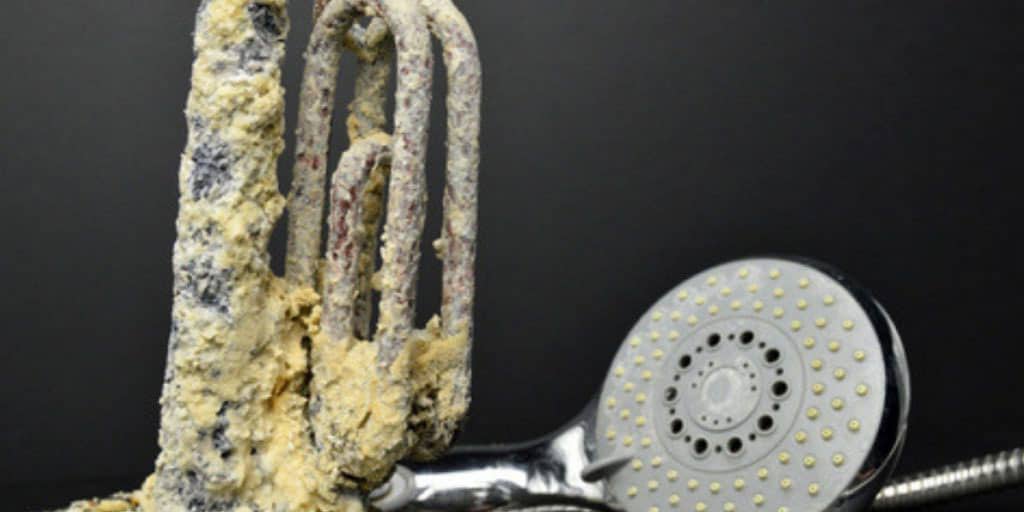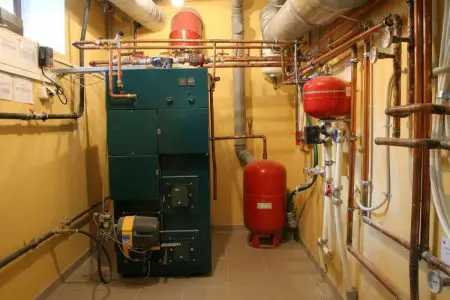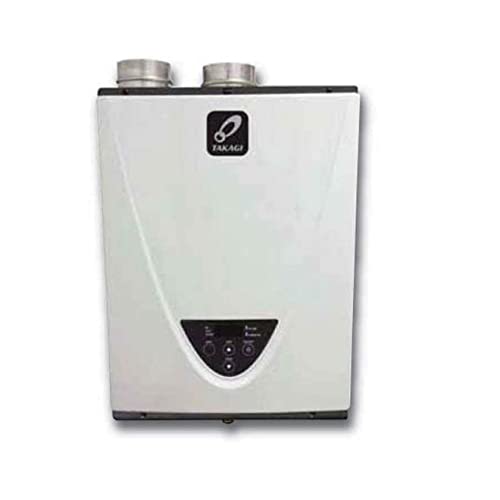Your water heater is probably trying to tell you something. It’s saying that it is time for it to be replaced.
Not everybody picks up on the signals of when to replace a water heater, however.
It’s tricky. Wait too long and your water heater dies on you and you are left without hot water while you find a replacement.
If you replace it too early, then you are spending money needlessly since it still had some life in it.
In this article, I am going to go over the sure signs that your water heater is failing and it’s time to say goodbye.
Read on for the simple guide about replacing your hot water heater!
5 Warning Signs to Never Ignore With Your Water Heater
Your water heater is likely telling you that it needs to be replaced and upgraded. Here are some of the signs that you need to pay attention to that show that your water heater is failing.
1 – Not Enough Hot Water
If you were getting plenty of hot water and now it seems to never last long enough, then this is a good sign that you need to replace it. Of course, your boiler being old isn’t the only reason you might be running out of hot water too fast. Check out this article about why you run out of hot water and see if there may be something you can try before you replace it.
There are a few reasons why you’re losing hot water. If your tank is old it probably has a lot of sediment and minerals built up in it that are affecting its performance.
Read More!
If your problem is the opposite and your water is scalding hot then read up on what might be causing your tank to overheat by clicking that link.

2 – Rumbling Noises
Popping, creaking and rumbling. Those are noises that shouldn’t be happening and do not ignore them.
This is your water heater telling you that there is something going on that is not right.
Usually, these noises happen because you have too much of a mineral build-up on your heating element. You get this build-up from hard water, which means it is high in lime and calcium. If you have a well, then chances are you have hard water. You should test your water with a TDS water hardness meter no matter what so you know what you are dealing with. Click that link to see one I recommend.
If you are hearing these noises, take them seriously because you are probably close to a leak, or worse.
You could try to flush the heater to get it back on track, but you are probably better off upgrading it.
3 – Cloudy or Rusty Water
The inside of your water tank was not meant to last forever. Eventually, it starts to corrode and you end up with rusty colored water. Now, this rusty water could be a sign that you have iron in your water and it needs an iron filter. The thing is though, iron doesn’t suddenly appear.
If your water was not previously rusty, then it likely is the inside of your boiler that is the problem.
Cloudy water is an indication that your hard water is affecting your heater. The water us taking on the cloudiness from the excess of calcium and magnesium common in hard water. Your heater is at a saturation point and is no longer accumulating the scale so it ends up coming out of your tap. This means you have a ton of build-up and your heater could fail.
4 – Leaky Tank
You could have leaks in your water heater that are not really a big deal. It pays to check where the leak is coming from before you decide to scrap your heater. If it is from around the valves, then you may just be dealing with a small leak that is easily fixed. If the water is coming out of the bottom of the heater, then your tank is likely the culprit.
5 – Age of the Heater
You may be approaching the 10-year mark for your heater and wonder if it is too old to keep going. If you haven’t seen any warning signs listed above then you’re not in any danger of your water heater failing. Yet, you might still want to upgrade. You could still get a few years out of your heater, but things can change quickly. What you don’t want is to wait until it is too old to function.
Another consideration is efficiency. As your water heater ages, it becomes less efficient.
Also, if a temperature and pressure release valve (TPV) is leaking then you have a major problem. The failure of one of these valves could lead to an explosion if it is not taken care of. Even if you don’t have a leak there, make sure you are testing them once a year.
If it isn’t your TPV valve or any of the water connections, then your tank is the problem and it is a good sign you need to upgrade. Energy.gov recommends upgrading an old tank system for better efficiency to save money and resources.
It is a good time to consider your options well ahead of time instead of when your heater has died on you.
My recommendation for many people is to go with a whole house tankless water heater instead of a tank system.
Average Lifespan of a Water Heater
Most water heaters are not built to last more than 10 years. If you have bought your heater in the last 3 or 4 years, however, you might have a model that can go up to 12.
If you maintain your water heater by flushing it every year or two and doing routine servicing, then you can keep it working longer than the manufacturer’s suggested service life.
The one problem with keeping your tank system going is that you are getting decreased efficiency as it ages. You are better off getting a new unit, or different type of water heater altogether instead of trying to prolong its life. You may end up saving more money in the long run.
How Often Do You Need to Replace Your Hot Water Heater?
Once every 10 years is a good rule of thumb for how often to change water heaters. Usually, they have a warranty of 5 to 10 years.
Just because the warranty is over doesn’t necessarily mean that you need to replace it. But, be ready for some servicing and issues with leaky connections as it gets older. You can, of course, fix these things, but it is usually better to just replace your heater once it is 10 years old.
Should I Replace My Water Heater Before it Fails?
It is a good idea to not wait until your heater fails before replacing it. Some people don’t see any reason to get rid of a water heater while it is working but there are good reasons to let it go early.
The first reason is that you don’t want to be without hot water suddenly in case it breaks down. If you have been doing routine maintenance then the odds of it having a sudden failure are low, but most people don’t pay much attention to their water heater until they don’t have hot water.
Another reason is that you end up saving money later. Old water heaters get less efficient and new models are engineered for higher efficiency.
Not only that, but you have a choice of hybrid water heaters, heat pumps and tankless to choose from these days that save money over their tank storage peers.
Check out the examples on Amazon just below to see what is available for hot water heaters these days.
Table could not be displayed.Frequently Asked Questions
In just about every city or town, there is a permit process needed to follow to replace a water heater. Since there are risks of injury from improperly installed heaters, it is very necessary.
For example, there is always a risk of fire if a gas line is nor properly connected. And a heater can explode if the TPV or temperature and pressure release valve are not properly installed.
If a temperature and pressure relief valve is leaking or malfunctioning in some way then the water in the boiler can heat to the point it becomes steam. If this happens then essentially the heater is now a bomb and can explode. When heaters get old, these things can start wearing out and cause some dangerous situations. It is rare that an old heater would explode, but it is possible.
This is highly dependant on where you live, but a good rule of thumb is to expect to pay up to $1,000 for a plumber to replace your water heater. This usually includes the cost of the heater plus the labor to install. It could cost more than that, but likely won’t cost less.
It also depends on what kind of water heater you opt for. The cost to install a tankless water heater is higher than a traditional tank system, for instance.
Generally, there isn’t much risk of an injury due to a tank system leaking. Unless it is the TPV valve that is damaged as that can cause an explosion. Otherwise, a leaky water connection or tank will likely cause some considerable damage to your home.
Summary
Knowing when to replace a water heater isn’t as anxiety-inducing as you think. Just watch for the danger signs I wrote about above. If you feel like it’s time to say goodbye to your tank water heater then it probably is.
Just be sure to upgrade your water heater when you replace it so you have a reliable and efficient replacement that will save you money.

Nick Lopresti is the founder of YourH2Home and a home improvement expert. He has years of experience writing about various home improvement topics, mostly as it pertains to water systems.








